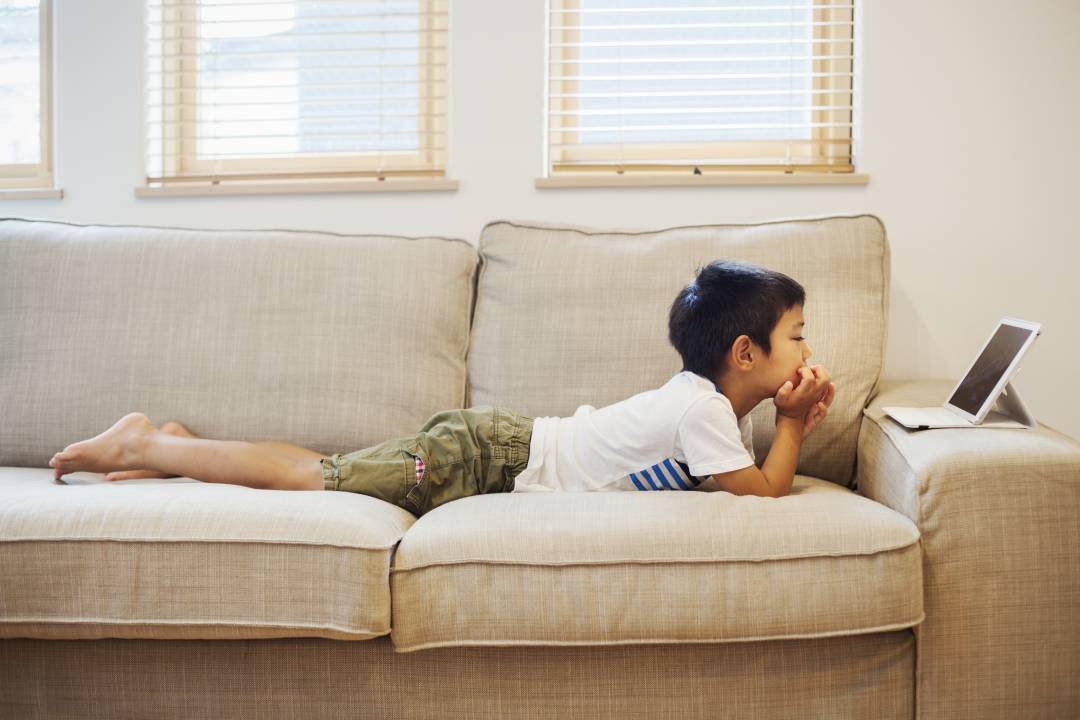Introduction
In today’s hyperactive, overly scheduled world, the mere thought of a child saying, “I’m bored,” sends many parents into a frenzy. Science Behind Downtime Shouldn’t they be busy with extracurriculars, classes, or screen-based enrichment? Or is boredom actually a hidden blessing in disguise?
This article dives deep into the Science Behind Downtime behind boredom, uncovering how downtime might be one of the most critical ingredients for healthy child development, creativity, and emotional well-being.
Table of Contents
- Introduction
- What Does It Mean for a Child to Be “Bored”?
- The Modern Myth: Constant Stimulation Equals Success
- What Science Says About Boredom in Kids
- The Psychology Behind Boredom
- Creativity: Boredom’s Hidden Gift
- Emotional Resilience and Boredom
- The Role of Boredom in Brain Development
- Parental Anxiety: Why We Fear Our Kids Being Bored
- Boredom vs. Screen Time: A Digital Dilemma
- How Different Cultures Approach Downtime for Kids
- What Happens When Kids Never Get Bored?
- Constructive Boredom: Encouraging Self-Led Exploration
- How Schools Handle Downtime
- Real-Life Success Stories: Boredom Breeds Brilliance
- Tips for Parents: How to Let Your Kids Be Bored Productively
- When Boredom Is a Red Flag
- How Much Downtime Is Healthy?
- Common Myths Debunked
- Conclusion: Boredom Isn’t the Enemy
What Does It Mean for a Child to Be “Bored”?
Boredom, at its core, is a state of mental unrest or dissatisfaction, a signal that one’s current situation lacks stimulation or purpose. For children, boredom might mean there’s no immediate structure or entertainment, but it’s also an invitation to explore, reflect, or invent.
It’s not always a negative state it can be neutral or even positive, depending on how it’s handled.
The Modern Myth: Constant Stimulation Equals Success
Today’s parenting landscape often equates busyness with productivity and success. Kids are often booked with:
- Music lessons
- Sports practices
- STEM camps
- Language classes
- Scheduled playdates
While these are beneficial in moderation, overscheduling can backfire, leading to stress, burnout, and the inability to self-regulate.
What Science Says About Boredom in Kids
Several scientific studies now suggest that boredom is essential for:
- Stimulating divergent thinking
- Encouraging self-motivation
- Building creative problem-solving skills
- Helping children develop internal resources
One study published in the journal Academy of Management Discoveries found that people who were allowed to be bored before a creative task came up with more imaginative solutions than those who weren’t.
The Psychology Behind Boredom
Psychologists define boredom as an emotion regulated by attentional control. When kids are left with nothing to do, they experience discomfort and this discomfort sparks curiosity and exploration.
This process encourages them to discover personal interests and grow independent problem-solving abilities.
Creativity: Boredom’s Hidden Gift
When children are not spoon-fed entertainment, their brains begin to fill in the blanks. Boredom can lead to:
- Inventing new games
- Drawing or crafting
- Writing stories
- Building forts or imaginary worlds
In short, it kickstarts imaginative play, which is crucial for cognitive and social development.
Emotional Resilience and Boredom
emotional resilience Learning to tolerate boredom teaches kids an essential life skill: delayed gratification.
In a world of instant rewards, boredom builds:
- Frustration tolerance
- Emotional patience
- Problem-solving under constraints
These skills form the backbone of emotional maturity and long-term mental health.
The Role of Boredom in Brain Development
Neuroscientific research indicates that during idle times, the brain’s default mode network (DMN) is highly active. This network is responsible for:
- Memory consolidation
- Reflection
- Future planning
- Moral reasoning
Allowing children time to “do nothing” actually gives their brains time to organize experiences and synthesize ideas.
Parental Anxiety: Why We Fear Our Kids Being Bored
Many parents feel guilty or anxious when their children complain of boredom. Why?
- Fear of wasted potential
- Peer pressure from other “busy” parents
- Misunderstanding boredom as neglect
- Cultural association of productivity with worth
However, boredom doesn’t mean you’re failing as a parent. It means your child is at a threshold—about to grow or discover something.
Boredom vs. Screen Time: A Digital Dilemma
When faced with boredom, many children instinctively reach for:
- Tablets
- Smartphones
- TV remotes
- Video games
These provide immediate stimulation, but they don’t allow the brain to wander, think deeply, or create. Constant screen time short-circuits the beneficial discomfort of boredom and may even lead to addiction-like behavior.
How Different Cultures Approach Downtime for Kids
In Scandinavian countries, children are encouraged to play freely in nature, often unsupervised. In Japan, it’s common to see young children walking to school alone, allowing time for reflection and independence.
By contrast, many Western cultures fear unstructured time, filling every moment with guided activities. There’s much to learn from cultures that honor stillness and Science Behind Downtime.
What Happens When Kids Never Get Bored?
When kids are always occupied or stimulated:
- They struggle with self-direction
- They lack internal motivation
- They experience increased anxiety when left alone
- They develop a dependence on external validation or technology
In short, constant busyness can erode autonomy.
Constructive Boredom: Encouraging Self-Led Exploration
Constructive boredom doesn’t mean neglect. It means supporting the environment without directing the activity.
Encourage kids by:
- Providing open-ended materials (cardboard, art supplies, building sets)
- Creating tech-free zones
- Letting them “figure it out”
- Asking open-ended questions like: “What do you feel like creating today?”
How Schools Handle Downtime
Schools are increasingly cutting back on:
- Recess
- Free periods
- Arts and music
Yet, these are critical spaces for imaginative growth.
Some innovative schools now reintroduce unstructured play, mindfulness breaks, and maker spaces to foster independent thinking.
Real-Life Success Stories: Boredom Breeds Brilliance
Many inventors, artists, and entrepreneurs credit boredom as a trigger for their breakthroughs:
- Steve Jobs wandered India seeking purpose during a “boring” phase of his life.
- Albert Einstein often credited his “daydreaming” time as the birthplace of his thought experiments.
- J.K. Rowling thought up Harry Potter on a delayed train without a phone to distract her.
These stories underline a common truth: Boredom opens the door to greatness.
Tips for Parents: How to Let Your Kids Be Bored Productively
Here’s how to reframe boredom in your home:
- Don’t rescue immediately. Let them sit with it.
- Model unstructured time. Let them see you reading, daydreaming, journaling.
- Create a “boredom box.” Fill it with prompts, tools, or random objects for creative use.
- Limit screen time intentionally.
- Use positive language. Say, “You have free time!” instead of “You have nothing to do.”
When Boredom Is a Red Flag
While boredom is usually harmless, persistent or distressing boredom may signal:
- Depression
- Anxiety
- ADHD or attention difficulties
- Unmet emotional needs
If your child seems perpetually apathetic or withdrawn, it’s worth seeking professional guidance.
How Much Downtime Is Healthy?
There’s no universal formula, but experts recommend:
- At least 1-2 hours per day of unstructured, device-free time
- Free play as a daily priority over scheduled learning
- Emphasizing weekend slowness not back-to-back events
Balance is key. Kids need both structure and spontaneity.
Common Myths Debunked
| Myth | Truth |
|---|---|
| Bored kids are lazy | Bored kids are in transition and about to engage |
| Boredom leads to bad behavior | Properly guided, boredom leads to creativity |
| Every moment must be enriching | Downtime is enriching in its own way |
| Kids should never feel discomfort | Discomfort is part of growth |
Conclusion: Boredom Isn’t the Enemy
Science Behind Downtime Boredom isn’t something to be feared or avoided it’s something to embrace and explore. In the stillness of a quiet afternoon or the silence between activities, children discover who they are, what they love, and how to think for themselves.
Science Behind Downtime So next time your child says, “I’m bored,” don’t panic. Smile. You just gave them a powerful gift: a chance to grow.
















